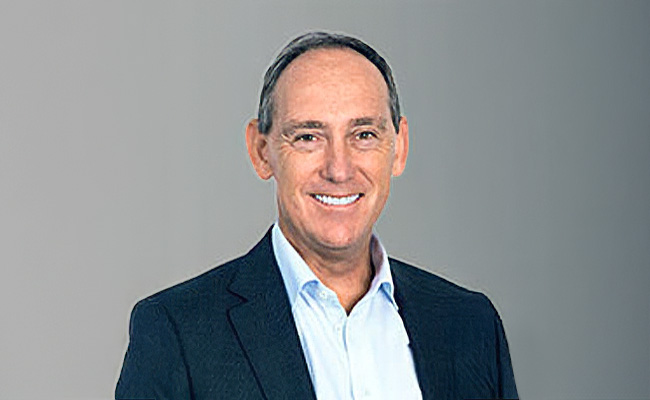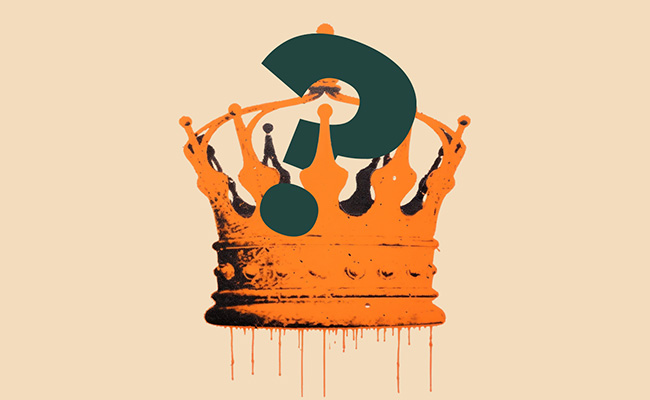Shoprite CEO Pieter Engelbrecht acted “disrespectfully” by dismissing criticism of his workers’ low pay as an “emotional argument”, says shareholder activism organisation Just Share.
Last week, Africa’s largest grocery chain reported record turnover of R256.2bn, and pre-tax profit of R10.1bn. But when asked about research from Just Share which showed that Shoprite paid the lowest minimum wage of any of the top 40 largest companies on the JSE, he told Moneyweb this was a “one-sided comparison” and not an argument “that you can win”.
The research last month showed that Shoprite had the lowest disclosed minimum wage among the JSE top 40 companies, of R71,674 – about R5,972 per month. Rival Woolworths reported a minimum wage that was 39% higher, at R99,450 per year, or R8,287 per month.
But Engelbrecht was correct about the limitations of this study: Shoprite was one of only 15 of the JSE’s top 40 companies that bothered to disclose their internal minimum wage. Just Share acknowledged as much, saying that Shoprite was “more transparent than many of its peers”, but added that the minimum wages at major retailers fall short of any living wage benchmark in South Africa.
Tracey Davies, executive director of Just Share, says for Shoprite staff, this is an existential issue.
“To dismiss the metrics around what Shoprite, as an employer of 168,000 people, pays as a minimum wage as simply an ‘emotional’ sideshow suggests the company doesn’t want to grapple with the wage gap in its own organisation,” she tells Currency. “The people who defend low wages are always earning orders of magnitude more than the people they so casually relegate to lives of struggle and indignity.”
Engelbrecht himself last year made R83m, including R20.2m as a guaranteed salary, and the rest in bonuses. It would take a worker at Shoprite earning a minimum wage 1,158 years to earn as much.
This isn’t the first time the generosity of Shoprite’s executive pay has caused waves. In 2016, the grocer’s chair, Christo Wiese, defended paying CEO Whitey Basson R100m, saying “I would have been happy to pay him much more”. Wiese had earlier said he would “pay R1bn in the middle of the night for another Whitey”, given the shareholder value he had created.
Just Share argues that Shoprite’s R5,972 per month falls short of the R12,000-R15,000 per month that a non-profit group called the Living Wage South Africa Network says would amount to a living wage. The network says a lower amount “often enables survival, but entraps people in poverty”.
In Shoprite’s annual report, it speaks of a tightrope act in balancing the imperative to provide jobs for 168,000 people — in a country where one in three people doesn’t have a job, and the tax base is shrinking — while paying higher wages.
“We are working to ensure that our entry-level employees are paid a fair wage, ensuring that as a minimum they are paid on average 11% above the national regulated minimum wage. In a country with high unemployment, relatively low growth and poor service delivery … we are striving to find the right balance in meeting the drive to pay a ‘living wage’,” it said.
Nationally, the minimum wage is R28,79 per hour – which amounts to about R5,182, based on a 45-hour work week.
Davies says that rather than dismissing this debate outright, Engelbrecht ought to have engaged with the deeper issue.
“Retailers operate in a difficult space, and Engelbrecht could have spoken of why the company has struggled to raise its minimum wage, and what the dynamics are around that. But instead, he brushed this off and minimised the issue,” says Davies.
Kudos to Woolworths
This is an issue all retailers are grappling with – but some are doing better than others.
Woolworths gets most of the kudos, since it implemented a “just wage initiative” to raise store workers’ hourly wage to R45 per hour – nearly double the R28.79 minimum wage. This underpinned the R99,459 annual minimum it paid, even though this is many multiples less than the R65.2m paid to CEO Roy Bagattini last year.
Pick n Pay, however, did not publish a minimum salary last year; revealing only that its “average” annual pay was R149,630.
The company founded by Raymond Ackerman in 1967 admitted that its own analysis showed a “large income disparity, driven by the high number of unskilled and semi-skilled workers” working in the stores. This, it says, is “reflective of the norms in the retail industry”.
Instead, it published a “pay gap” graphic without any numbers, that revealed that the best-paid 5% of its staff earned 18.2 times more than the lowest-paid 5%.
Spar, whose CEO Angelo Swartz earned R17.1m last year, earned 165 times that of the lowest-paid worker, who got R103,583 – or R8,631 per month – according to its annual report. Last year, Spar debated implementing a “living wage”, but opted to make “gradual adjustments to mitigate the financial impact” over the next three to five years.
Lindiwe Sebesho, the managing director of Remchannel, which specialises in benefits, says companies should be disclosing their internal minimum wage levels. “Woolworths was among the first companies to disclose their lowest-paid employee figures and has earned industry recognition for their ‘just wage initiative’,” she says.
Sebesho says Woolworths’ operating model differs from other retailers, so its wage “may not be feasible or directly applicable to others in the sector”.
She says the negative media around these numbers may have contributed to retailers being hesitant to reveal them – but she says companies should thoroughly explain these pay gaps to mitigate this risk.
In reality, Davies says, most store workers probably aren’t earning too much more than the legal minimum wage, with Pick n Pay likely to be in a similar range to Shoprite.
Nonetheless, where Engelbrecht would be right is that it would be misleading to compare a retailer hiring unskilled or semi-skilled staff to a bank like Investec, which hires white-collar workers. The disclosures show that investment company Remgro, chaired by Johann Rupert, had the highest “internal minimum wage” of R258,148 per year, followed by Investec and Impala Platinum (both R250,000) and then Harmony Gold (R228,432).
Says Davies: “Huge, profitable companies, which are paying their executives tens of millions of rands, have a moral and social obligation to pay all their workers at least a living wage if they are serious about contributing to South Africa’s growth”.
Top image: Shoprite CEO Pieter Engelbrecht. Picture: Shoprite Holdings; Rawpixel/Currency collage.
Sign up to Currency’s weekly newsletters to receive your own bulletin of weekday news and weekend treats. Register here.














What’s more emotional is the fact that if he does not like the question he sweeps it under the carpet, like they all do…
This article is an misguided attack on Shoprite, one of the very few companies in SA which consistently creates new sustainable jobs, spends money on the unemployed youth (of which we have millions) and benefits all citizens with low prices and vibrant innovation.
Shoprite is a great company “contributing to SAs growth”, we need more Shoprites.
Just Share should engage with what it terms the “deeper issues” being record high unemployment in SA, 28 million citizens on social welfare and the destructive impact that wages, not matched by productivity, have had on any number of SA companies and industries.
Well said! Would be great to know how many jobs are created by them every year with new store openings.
In their 2025 results presentation Shoprite report that they created 8723 jobs in 2025 (6490 new jobs in 2024) and that they spent R130 million on training unemployed youth in 2025.
Well put go engage Peter Engelbrecht on all that Shoprite Checkers offers. The authors of these cynical articles will be surprised. Wake up an smell the coffee
Are you working at shoprite?
Nothing is misguided here, am working for shoprite i know exactly what they talking about
What about Massmart works minimum wage an now Wal-Mart Coming to SA are thay going to exploit the works
Shoprite as the big abdominal profitable retailer should do better to pay their staff. Mr Engelbrecht must no get emotional but rather see this critism and improve because workers are working hard only to survive and that is not fair.
I applaud you ❤️
Shoprite does pay us very less.
We are not unskilled or semi educated.
They need to do the right thing. Pay a man accordingly.
Do the right thing, always.
It’s agreed that no discloses private information, but you’re public company, serve your workers with enthusiasm.
Richard Branson, you’re the top leader in the world, stay that way!